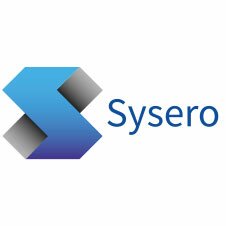Sysero: Why law firms must change to survive and thrive
It’s safe to say that the legal industry has never seen a year like 2020. In what was an unprecedented year for UK law firms, with new challenges arising from the pandemic and Brexit, one thing has been made abundantly clear: law firms must embrace change.
The events of the past 18 months have shown that change is inevitable in the legal sector. In the past few years, law firms have struggled with how to ensure sustainable growth, create differentiation and make the right technology investments. However, the arrival of the pandemic quickly forced firms to adapt and evolve by transitioning to new ways of working.
While lockdown restrictions are eased, offices reopen and people return to work, the survival of firms depend on their ability to refrain from slipping back to old ways of working. The legal landscape has been forever changed, and law firms must adapt to a more agile way of working, or risk being left behind.
What’s Driving Change
Today’s firms face significant economic stress and uncertainty, thanks in large part to the pandemic. According to recent research by PwC, more than 80% of Top-100 law firms are concerned about meeting their financial obligations in the period to 2022. We’ve already seen many law firms in the UK respond to the pressures with redundancy rounds, staff cuts and partner deferrals.
Adding to the financial pressures brought on by the pandemic, firms are also now navigating a seismic shift in client expectations. When the world transitioned from office-based work and traditional business processes to more agile, flexible ways of working, clients’ priorities changed. Now, clients are looking to their firms to deliver innovative, technology-driven legal services that provide enhanced flexibility and value.
It’s a telling sign that the top three priorities for law firms over the next 12 months are: improving the use of technology; standardising and centralising processes; and improving legal service offerings (PwC). Heading into the year ahead and beyond, today’s firms have the opportunity to step outside their comfort zone and drive real, differentiated change. In fact, they may have to in order to survive in the new legal landscape.
Three Main Areas for Driving Change
While embracing new ways of working in a law firm isn’t always simple, there are some key areas in which to focus.
Improving Legal Service Delivery
Strong client relationships are increasingly important for the modern law firm. Coming off of a year defined by agility, today’s legal clients want greater flexibility, value and transparency from their legal providers. Clients are looking to their legal partners to be just that – partners. In fact, according to the State of the UK Legal Market 2021 report, nearly half of corporate clients (47%) say that the main way firms can bring more value is to commit to a longer-term partnership.
So, how can lawyers spend more time with their clients? Simple: reduce the amount of time they spend on mundane, repetitive tasks. Adopting document and workflow automation technology can help lawyers optimise their processes to be more efficient, giving them more time to focus on building client relationships.
Law firms can also take document and workflow automation technology one step further to offer clients around-the-clock service. Innovative firms are already using self-service client portals to give clients the ability to quickly and easily generate firm-approved documents on-demand. These cloud-based portals afford firms the flexibility to serve clients in a remote environment, while also creating service differentiation and boosting firm profitability.
Modernising Business Processes
As firms struggle to overcome fresh financial challenges, the need for automation and standardisation has never been greater. Many law firms still have legacy processes in place that are no longer fit for use. For example, firms which continue to rely on manual processes to accept and evaluate new clients and matters are much more likely to operate less efficiently than a firm using modern technology to support these processes.
With workflow automation, firms can simplify and accelerate many common business processes. Wikborg Rein’s digital client onboarding solution is a great example. To comply with the Money Laundering Act, as well as data protection laws, Wikborg Rein support staff used to spend a considerable amount of time manually assessing new clients and cases before accepting them to the firm. However, the firm recently transitioned to a new digital client onboarding solution, developed in collaboration with Sysero and PSA Consulting.
The new digital onboarding system uses Sysero’s workflow technology to power intuitive web-based acceptance forms where new clients and cases can be registered. Once the necessary information has been collected, it’s automatically assessed and verified against public registers and databases. The client’s identity is also authenticated through their Bank Identifier Code. Any client or case that falls outside the requirements is automatically routed to a workflow for further assessment to ensure compliance. Once approved, the new client and case are automatically created in the firm’s integrated internal systems.
The digital solution has empowered Wikborg Rein to transform client intake from a set of disparate and onerous tasks to a streamlined, quality-driven and comprehensive cloud-driven process. With faster acceptance and high quality evaluation, the firm can onboard more clients and get to work faster.
Adopting New Technologies
Clearly the way forward for the modern firm is digitisation. While the pandemic accelerated the need for digital transformation, firms must continue to embrace new technologies to stay competitive in the market.
Law firms can use workflow automation to streamline a number of different processes and make them available in the cloud, including business acceptance, contract negotiation, document generations and legal service delivery. With cloud-based applications, lawyers, staff and clients can access critical programmes and processes through their browser, without having to download applications on a physical computer. Ultimately, this provides for a more nimble, agile and efficient way of working.
Despite the challenges ahead, law firms have the opportunity to drive positive, lasting change and pave the way for a brighter future. Those firms that build upon the agility they’ve built over the past several months and embrace the innovation needed to outperform their competitors are the ones that will ultimately prove to be successful.
To learn more about how Sysero’s technology can help your firm improve client service and accelerate digitisation, get in touch with our team.



